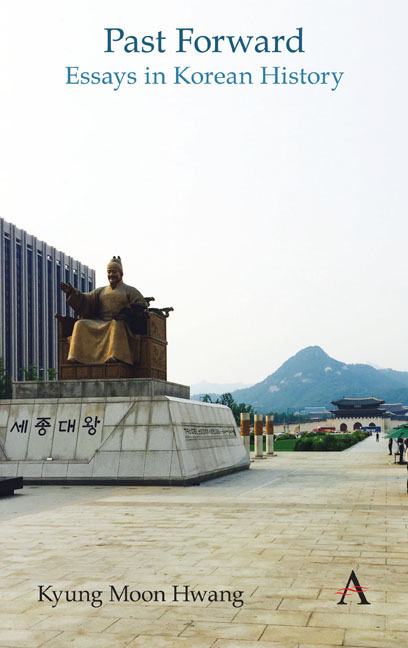Book contents
- Frontmatter
- Contents
- List of Figures
- Foreword
- Chronologies of Korean History
- Themes
- Acknowledgments
- Note on Romanization and Spelling
- Part I Circulating History
- Part II Durable Traditions
- Part III Ancient Remains
- Part IV Dynastic Depths
- Part V Modern Origins
- Part VI Challenges of Nationhood
- Part VII History Makers
- Part VIII External Presences
- Part IX Trials of Modernization
- 62 Summer Symmetries
- 63 The Korean War as a Turning Point
- 64 The Students of April
- 65 The Four Ds of South Korean History
- 66 Two Assassinations
- 67 Roads to Revolution
- 68 Dramatizations of the Gwangju Uprising
- 69 The Great Labor Uprising of 1987
- Part X Gripped by the Past
- Index
65 - The Four Ds of South Korean History
from Part IX - Trials of Modernization
- Frontmatter
- Contents
- List of Figures
- Foreword
- Chronologies of Korean History
- Themes
- Acknowledgments
- Note on Romanization and Spelling
- Part I Circulating History
- Part II Durable Traditions
- Part III Ancient Remains
- Part IV Dynastic Depths
- Part V Modern Origins
- Part VI Challenges of Nationhood
- Part VII History Makers
- Part VIII External Presences
- Part IX Trials of Modernization
- 62 Summer Symmetries
- 63 The Korean War as a Turning Point
- 64 The Students of April
- 65 The Four Ds of South Korean History
- 66 Two Assassinations
- 67 Roads to Revolution
- 68 Dramatizations of the Gwangju Uprising
- 69 The Great Labor Uprising of 1987
- Part X Gripped by the Past
- Index
Summary
If one were to write a history of South Korea, he or she would have to start with a big decision: What should be the “master narrative” of this period of over seven decades? In other words, how does one best tell the larger story of South Korea's historical experience?
This choice would reflect the author's evaluation of the most valuable factors and events, but also the sense of a broader purpose of historical change, and a judgment on the country today. The values and ideological stance of the author, in short, would play a large role in determining this master narrative. Still, it seems one can narrow down the choices for this grand theme to the four Ds: Development, Dictatorship, Democratization and Division.
Development refers to the extraordinary pace and scale of economic change, particularly since the 1960s when growth through export-oriented industrialization began as a national strategy. From being one of the poorest countries in the world in the 1950s, amid recovery and reconstruction from the Korean War, within half a century South Korea became one of the most economically advanced. By every measure, the material changes were precipitous and fundamentally altered the lives of South Koreans. This development also encompassed urbanization and population growth, a proliferation of occupations, basic transformations in society and culture, and a political system that was measured according to economic growth.
This is also why the second possible master narrative, dictatorship, remains very convincing. Few observers would suggest that dictatorship should be celebrated, of course. But if one believes that only a strongman, like Syngman Rhee or Park Chung-Hee, could have brought the necessary order and direction to a country ravaged by colonialism and civil war, then dictatorship can appear as a necessary ingredient to the pursuit of economic growth. Autocratic rule in South Korea, after all, did not produce the totalitarian brutality seen in so many other countries of the twentieth century, so the reasoning goes. As painful as they might have been, the excesses of authoritarian politics constituted sacrifices, or perhaps necessary evils, for the sake of achieving economic growth and social stability. Even democracy, from this perspective, had to wait until this combination of stability and growth under dictatorship could mature.
- Type
- Chapter
- Information
- Past ForwardEssays in Korean History, pp. 188 - 190Publisher: Anthem PressPrint publication year: 2019



